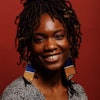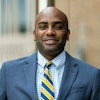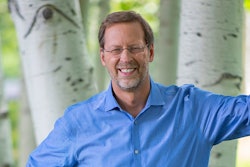JACKSON, Miss.
Within days after the current hurricane season began, a consortium of academics and community organizers gathered in Jackson, Miss., to confront the likely possibility that Hurricane Katrina was not their last deadly storm.
The need for clear, well-researched disaster plans that include civic engagement was the focus of the symposium, “Response to Community Crisis: Lessons from Recent Hurricanes.” The event, held June 6-9, was sponsored by Tougaloo College and featured a diverse group of partners, including the HBCU Faculty Development Network Campus Compact, a group of college presidents committed to involving the academy in civic causes.
“HBCUs are very vulnerable in this kind of crisis because they tend to be very old and to have old institutional resources,” said Joseph Stevenson, director of Jackson State University’s executive doctoral program. “We have to apply and leverage knowledge within the institution and with each other.”
Stevenson was among several presenters who discussed the particular threat of hurricanes to historically Black colleges and universities, as demonstrated by the devastation of Xavier University of Louisiana, Southern University New Orleans and Dillard University during Katrina. All three campuses were closed for the fall semester. Xavier reopened in January while Southern moved many of its operations to its nearby Baton Rouge campus and opened a temporary campus of trailers. Dillard held classes for 1,048 students in the downtown Hilton Hotel and is slated to reopen on Sept. 25, 2006.
Presenters offered case studies and best practices for preparing campuses for disasters and using institutional resources — physical and intellectual — to help needy populations in the surrounding communities.
Stevenson’s doctoral students, using Geographic Information Systems and other research tools, developed proposals to create a database of information needed in emergencies.














